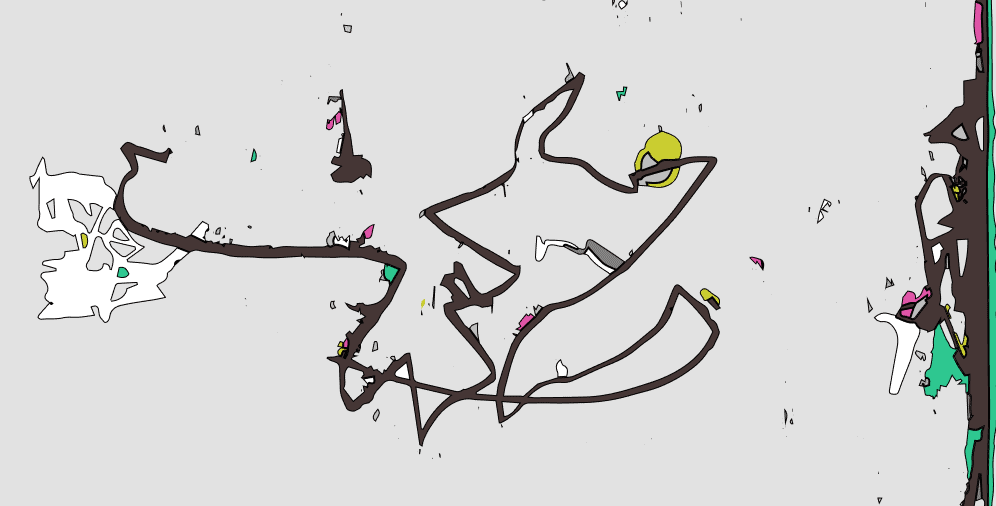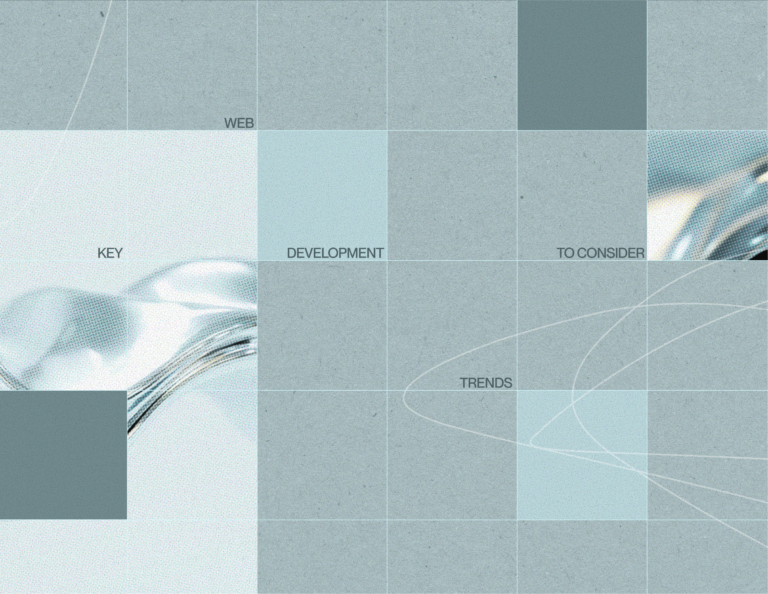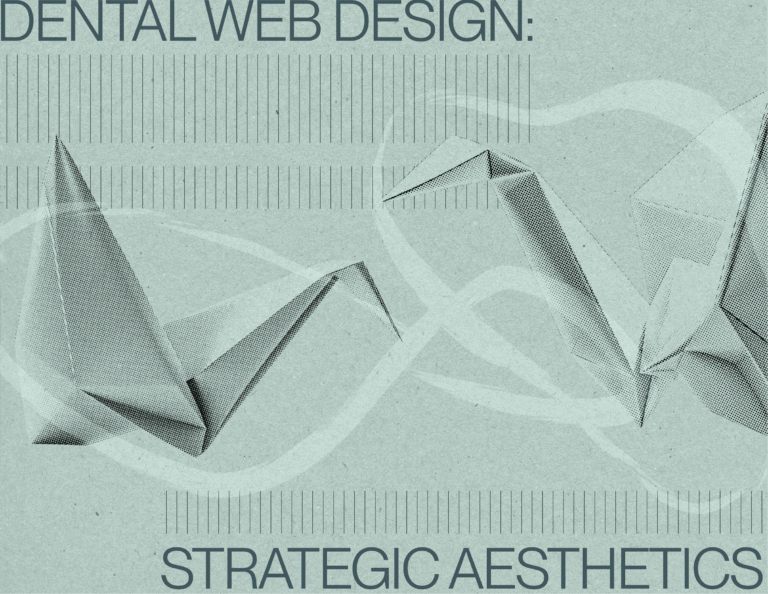Outline:
Embarking on a new web design project is an exhilarating and thought-provoking experience, but it can also pose significant challenges. As a web designer, it’s crucial to gain a thorough understanding of your client’s requirements and their vision for the final product before delving into the creative process. There are numerous critical details to consider, and each of them is vital.
One swift and effective way to ensure that the corporate website design aligns with the client’s expectations is by creating a web design questionnaire. This will assist in defining the final deliverables and establishing a solid foundation for the web design proposal. In this article, we will explain what a website design questionnaire entails and examine the kind of questions that you should pose when starting a web design project. So, let’s get started.
Understanding Website Design Questionnaires: What They Are and Why They’re Important
Web design questionnaires are a crucial aspect of the web design process. They are a set of appropriate questions that web designers create to gain a clear understanding of their client’s desires and requirements. These questionnaires are sent to potential clients before the actual work begins.
If you’re a web designer planning to build a website, it’s essential to send a questionnaire to your potential clients beforehand. This allows you to define all the necessary details, from budget and timeline to the specifics of the future website’s target audience. While composing the questions may take some time, it is always worth the effort. Having all the answers in one place, which is a significant advantage of any questionnaire, will undoubtedly make your work easier and ensure the success of the project.
In essence, website design questionnaires serve as a means of establishing effective communication between web designers and their clients. By asking the right questions, web designers can gain a comprehensive understanding of their client’s needs and preferences, allowing them to tailor their services to suit their client’s unique requirements. Furthermore, website design questionnaires provide a structured framework for the web design process, ensuring that all crucial details are accounted for and that the project is executed seamlessly.
Why You Need a Website Design Questionnaire
Obtaining basic information is not the sole purpose of using a website design questionnaire. Clients may not always know precisely what they want, and they may even conceal why they require a new website. Failure to ask detailed questions ahead of time might lead to misunderstandings later on.
A website design questionnaire assists clients in articulating their requirements more clearly and ensures that you comprehend their vision accurately. Additionally, it provides insight into the client’s brand values, objectives, and mission. Ultimately, a well-constructed questionnaire facilitates the creation of a website that meets its goals and provides an excellent user experience for potential visitors.
Also See: What does it cost to redesign a website
Ultimate Website Design Questionnaire: Questions to Ask for a Successful Project
So, what questions should you ask when designing a website? Check out our web design questionnaire that involves several design phases and aspects of project delivery, maintenance, and support.
Phase #1: Assessing the Current Website
When starting a new web design project, it’s essential to obtain fundamental information. Below are the core questions to ask your clients.
- Why do you need to build or redesign your website?
Determine if your client requires a completely new website or if they want to redesign an existing one. If it’s the latter, it’s critical to understand their reasons.
- What business goals do you want your website to achieve? Which goals are not being met currently?
Knowing the client’s goals is crucial. They must have them and be aware of which goals cannot be accomplished with the current website version.
- What is the main goal of having a website for your brand?
A client’s brand must have a specific purpose, which you must understand. Building a visually appealing website is easy, but creating a functional one that achieves its goals and meets its users’ needs is more challenging.
- What will users get on your website?
Ask detailed questions to understand precisely what should be offered to the users.
- What kind of website does your brand need?
Understanding what kind of website the client needs is essential when it comes to selecting the appropriate platform, features, and functionality.
- Who is your potential audience?
Every website is created for a specific audience, and understanding their needs is critical to achieving the desired results.
- How will you determine success?
Before launching the website, the client must set goals, both long-term and short-term, and track them afterward to determine the website’s success.
- How do you want your brand’s website to be portrayed?
Knowing the client’s desired vision of the website is critical to ensure that it accurately represents their brand’s values and evokes the desired emotions in users.
- What do you like and dislike about your competitors’ websites?
Analyzing competitors’ websites is always beneficial, allowing the client to decide what features they want to see on their website and what should be avoided.
Phase #2: Planning for Redesign
Now that you have the basics, it’s time to go deeper. Here are the questions that can accelerate the entire design process and prevent miscommunication.
- What is the scope of this project?
Knowing the project’s scope is crucial to avoiding scope creep, ensuring that you stay on track and within budget.
- What is the project timeline?
Establishing a launch date and tracking project progress is critical, and a specific date enables you to plan everything in advance.
- What is the project budget?
Knowing the budget enables you to plan effectively, and clients may need to choose some features over others to stay within budget.
- Which functions or features are necessary?
Determining what is essential and what is “nice to have” depends on the website’s purpose.
- What are the most important calls-to-action (CTAs) on your website?
CTAs should encourage users to complete certain actions, and determining which ones are most effective requires careful consideration and testing.
- How much traffic do you expect?
Understanding the website’s expected traffic enables you to prepare for the website’s capacity and avoid crashes.
- What is the most important information on your website (especially on the home page)?
Users won’t stay on a website for long if they can’t find what they need immediately.
- Do you have a proposed sitemap prepared?
Checking a proposed sitemap can save time during the project.
- Do you have any specific goals for your website?
Understanding specific goals can help you focus on the right areas during the project.
- How quickly do you want to achieve these goals?
Ensuring that both you and the client are on the same page regarding deadlines is critical for a successful project.
Phase #3: Analyzing Competitors
For a website to stand out from its competitors, it’s vital to know as much as possible about them and analyze the information gathered. The questions below will be a great help in this regard.
- Who are your main competitors? Can you name the top ten of them?
Identifying the top competitors is critical to understanding the market and making informed decisions.
- What makes them special? Why do they stand out from others?
Understanding the unique selling points of competitors can help to inform the design and content of the client’s website.
- What do you like the most about your competitors’ websites?
Identifying what works well on competitors’ websites can help to inspire design elements for the client’s website.
- Are there any websites of your competitors that you dislike? If so, why?
Knowing what doesn’t work well on competitors’ websites can help avoid similar mistakes on the client’s website.
- Do you like specific details, features, and functionality of your competitors’ websites?
Identifying desirable elements on competitors’ websites can help inform design decisions for the client’s website.
- Which of those elements would you like to see on your website?
Determining which desirable elements from competitors’ websites the client wants on their own website can help inform design decisions and differentiate the client’s website from its competitors.
#Identifying Target Audience
To create a successful web design project, it is essential to identify the target audience. Here is a list of questions that web designers need to ask while building a website to understand its potential visitors better and make the creating process easier.
- What are the general needs, desires, and challenges of your target audience?
- How can your website help your audience with their pain points? What features are meant for that?
- What is the age group and gender of your target audience?
- Where is your target audience mostly located?
- What is the marital status of your target audience?
- Do your target audience members have children?
- What are the occupation and income levels of your target audience?
- What is the education level of your target audience?
- What are the personality types of your target audience?
- What are the general values of your target audience?
- What hobbies does your target audience have?
- What are the behaviors and attitudes of your target audience?
#Building Brand Identity
Brand guidelines play an important role in building a brand identity, and it is vital to pay attention to them during web design. Here is a list of questions to help web designers with the branding process.
- Do you have brand guidelines, and what are they?
- If not, do you need help creating them?
- Do you have any color preferences for your website?
- What kind of images seem appropriate for your business?
- If we do a redesign, do you want to update all your images?
- Do you want help creating images?
- Do you have a site architecture completed?
- Are all your products/services meant for the same type of clients?
- What helps your brand to stand out among your competitors?
- What content do you expect to see on your website?
- Do you have any duplicate content right now?
- What will you do when your website is launched? Will you need additional help with the next steps?
- Do you have a logo and a slogan?
- What values do you want to translate?
- Do you have a mission as a brand?
#Sales, Marketing, and Promotion
Detailed information about sales, marketing, and advertising is essential to building a well-organized and efficiently working website. Here are some questions that web designers need to ask to understand their client’s position better.
- What types of marketing do you generally prefer?
- Do you have any content strategy right now?
- Are you planning to run any ads? If so, what kind?
- What is your advertising budget?
- Do you have any problems attracting qualified leads for your business?
- How invested are you in social media?
- Will you have a blog page on your website? If so, who will be in charge of it?
- Do you use marketing automation software right now?
- Do you currently use any email marketing or similar tools?
- Are you familiar with a CRM to store sales and customer information?
- Do you prefer your targeted content to be personalized for specific types of users?
- How do you feel about email marketing communications?
- What types of emails do you send to your customers?
- Are you planning to use automated emails triggered by customers’ actions?
- Do you want to be able to create, edit, and publish landing/site pages?
- Have you already performed A/B tests of your landing pages and calls-to-action to increase CTRs?
- Are you satisfied with your previous marketing and advertising experience? If not, what were your biggest challenges?
- Where do you expect most customers to come from to your website once it’s launched?
#Website Features and Functionality
When it comes to building a website that meets your client’s requirements and expectations, you need to ask the right questions. This list of development and functionality questions will help you dig deeper into your client’s functional requirements, content, and features.
Functional Requirements:
- What are your general functional requirements for your website?
- Do you need any specific features or elements?
- Are you planning to make sales on your website?
- Do you require a chat feature?
- Do you want to have a mobile-friendly design or is it just for desktop?
- Do you need an internal search engine on your website?
- What way do you want users to log in on your website? (Using a username and password or by social logins?)
- Do you want users to be able to leave comments on your posts?
- Do you want users to be able to post reviews of your products or services?
- Will your website content include audio and video files? If so, what video hosting service are you planning to use?
- Do you want users to be able to share your content on their socials?
- Do you expect to have their personal information (such as payment or address details)?
- If you’re updating your website, what functional features have you found useless before?
- What elements on your current website would you like to remove?
Optimizing User Experience:
- Can you say that the current version of your website has all the necessary features that help your visitors?
- Does its design have enough white space?
- Is it easy for users to navigate through your website?
- Do they know what to click next?
- Do you think your menu is clear enough?
- Would you like to add more menu options or to reduce them?
- Would you say that your current website does or does not have too many distractions?
- Do your CTAs stand out on the page?
Managing Project and Budget
The phase of managing a project and budget is a crucial aspect of any web design workflow. In this phase, you will need to discuss and determine the budget for the project, establish a launch date, and identify who will be responsible for the final testing of the website. Here is a list of questions to ask clients:
- What is your budget for this project?
- What is the launch date of the project?
- Do you have any budget for further website improvements?
- Who will be responsible for the final testing of the website before its launching?
- Who will be providing feedback on your website?
- Who will be handling the website after it’s launched?
- Do you need help with managing the website once it’s launched? If so, what are your terms and planned budget for it?
On a Final Note
Having a clear understanding of your client’s needs and goals is significant for a successful web design project. That’s why preparing a web design questionnaire beforehand is highly recommended. This will enable you to gather all the necessary information about the project, including the budget, timeline, and desired features.
Organizing your questions into different sections based on the topic can also help avoid confusion and information overload. You can use the questions provided in this article as a starting point or customize them based on your client’s unique requirements.
Remember, effective communication is key to ensure that you and your client are on the same page throughout the project. If you need any help or have further questions, don’t hesitate to reach out to us. Our team is always ready to assist you in any way possible.





